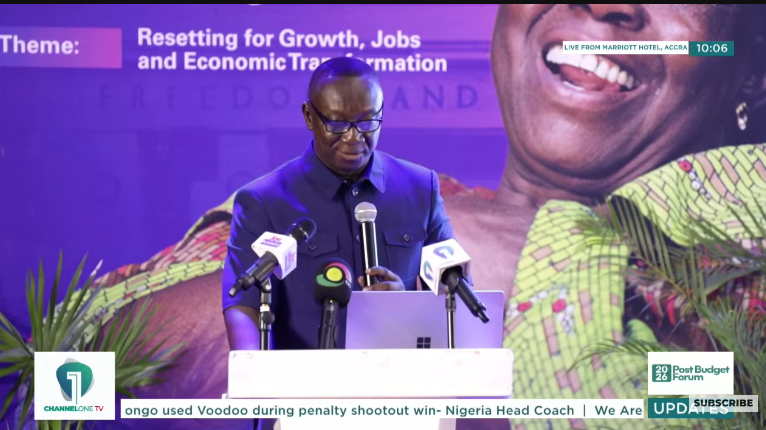The government says the 2026 Budget has been carefully structured to drive economic transformation and reduce poverty, emphasising that traditional indicators like Gross Domestic Product (GDP) do not fully capture improvements in citizens’ living conditions.
According to the Ministry of Finance, GDP—though widely used as a benchmark for economic performance—has limitations when used to assess poverty reduction. This perspective was shared at the KPMG/UNDP 2026 Post-Budget Forum held on Monday, November 17, 2025, in Accra.
Speaking on behalf of Finance Minister Dr. Cassiel Ato Forson, Samuel Danquah Arkhurst, Chief Economist Officer and Director of the Real Sector Division at the Ministry of Finance, underscored the need to look beyond GDP when assessing the health of the economy.
“When it comes to the growth component of an economy or the health of an economy, in a single word, the GDP becomes the natural variable, but that is always a questionable position. This is because it has its flaws when it comes to poverty reduction,” Mr. Arkhurst stated.
He explained that the government’s approach to the 2026 Budget prioritises poverty reduction through targeted resource allocation.
“We always hear in the media space how the GDP is not affecting poverty reduction. For the first time, the GSS has presented monthly projections of the GDP for a reason. The same applies when it comes to poverty indicators; you do a survey that cannot be done every year.
“So, if you do not see them in the budget, it does not mean we do not prioritise them. But it is because of the allocation of the resources, it is engineered towards the poverty angle,” he said.
Mr. Arkhurst also highlighted how the budget integrates long-term economic transformation into its priorities.
“Economic transformation is a means to an end but not a means in itself. So, when you look at the budget, you will see economic pathways. The budget described some infrastructure as mega projects, because they lead to economic transformation.
“Those who will see the construction of the 1,200-megawatt plant, for instance, will understand the transformational nature of these projects. The green transition is also a key position in the 2026 budget.”
Cedi appreciation could hurt exports, jobs — Economist cautions


